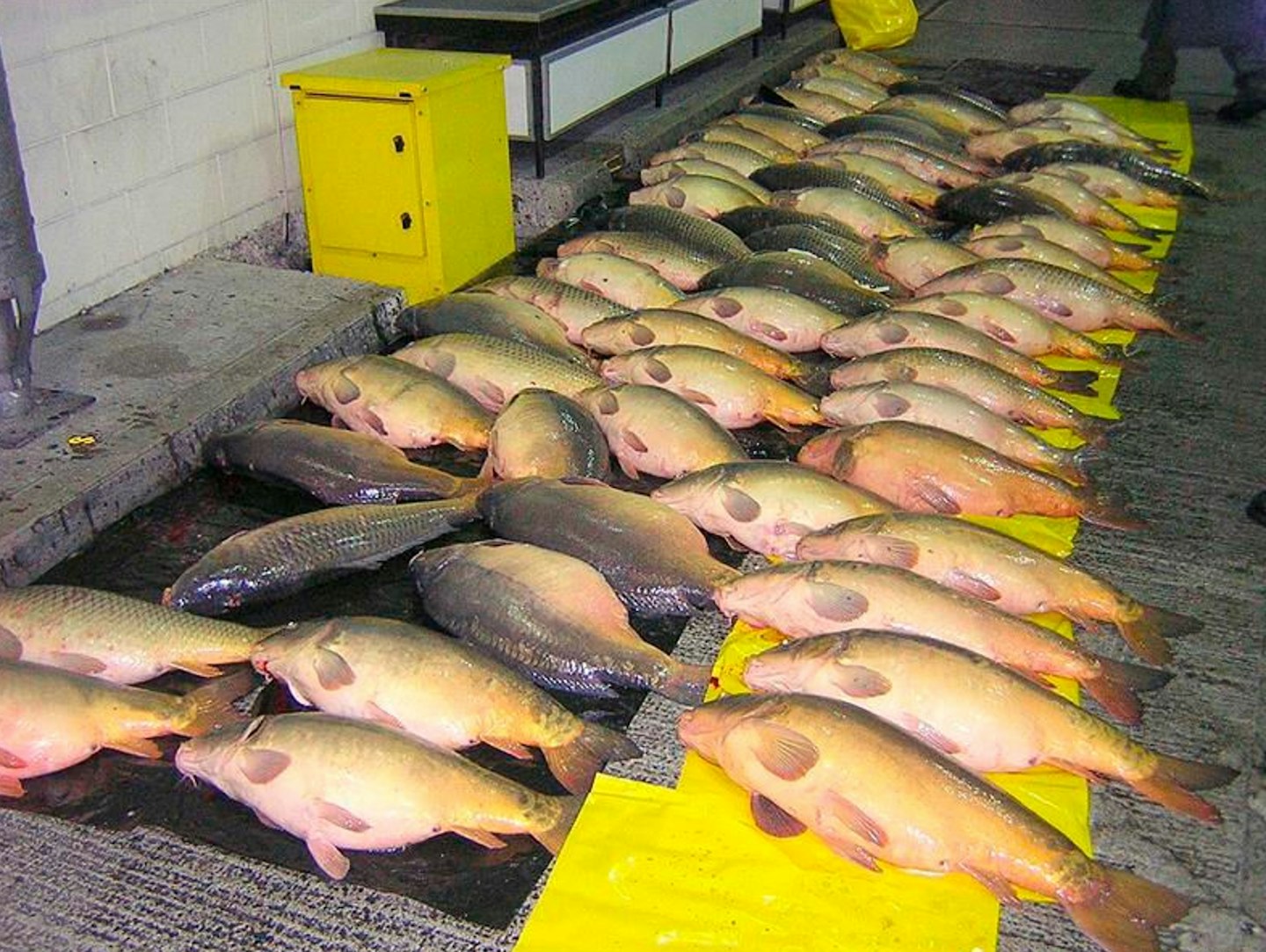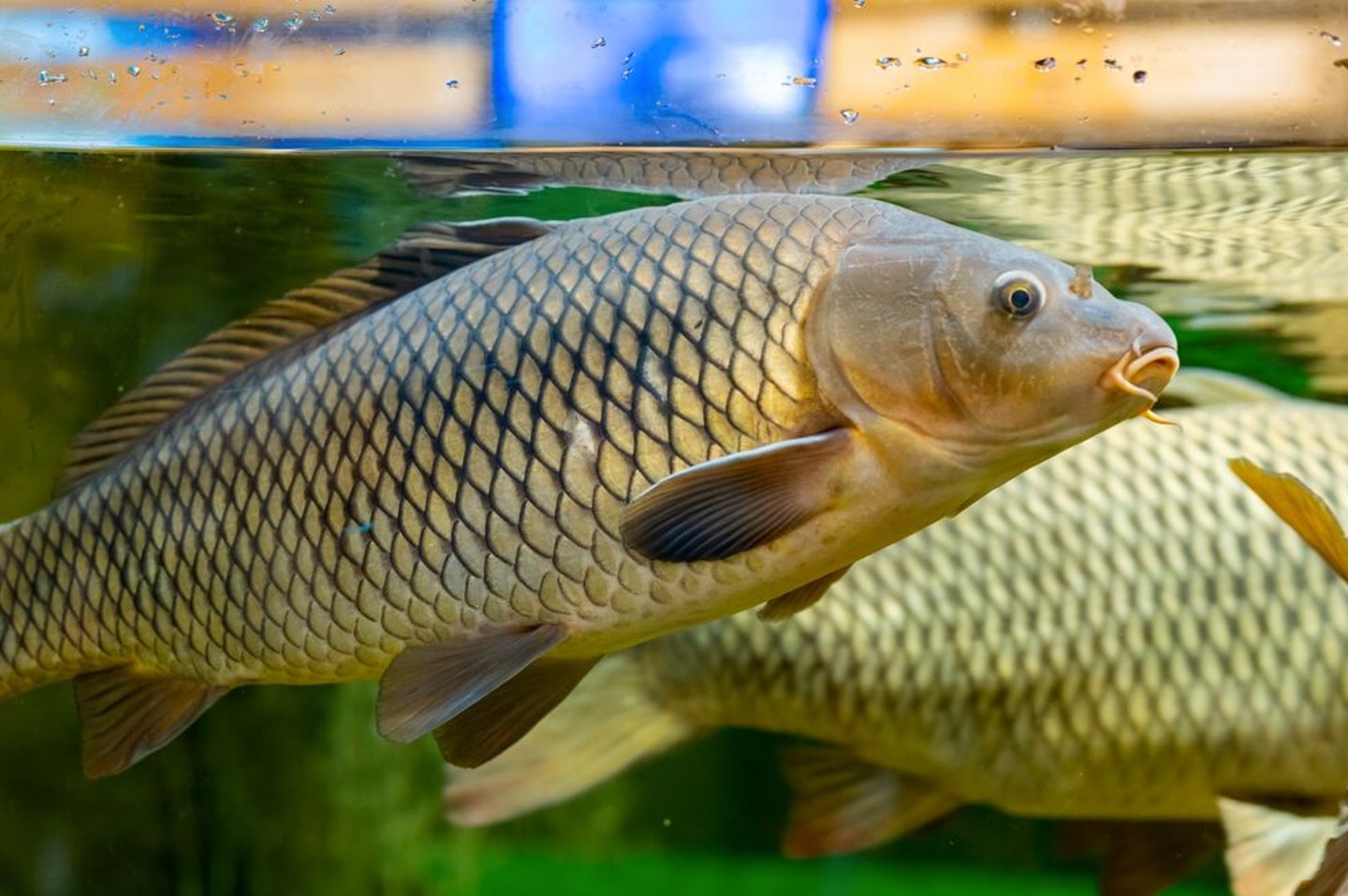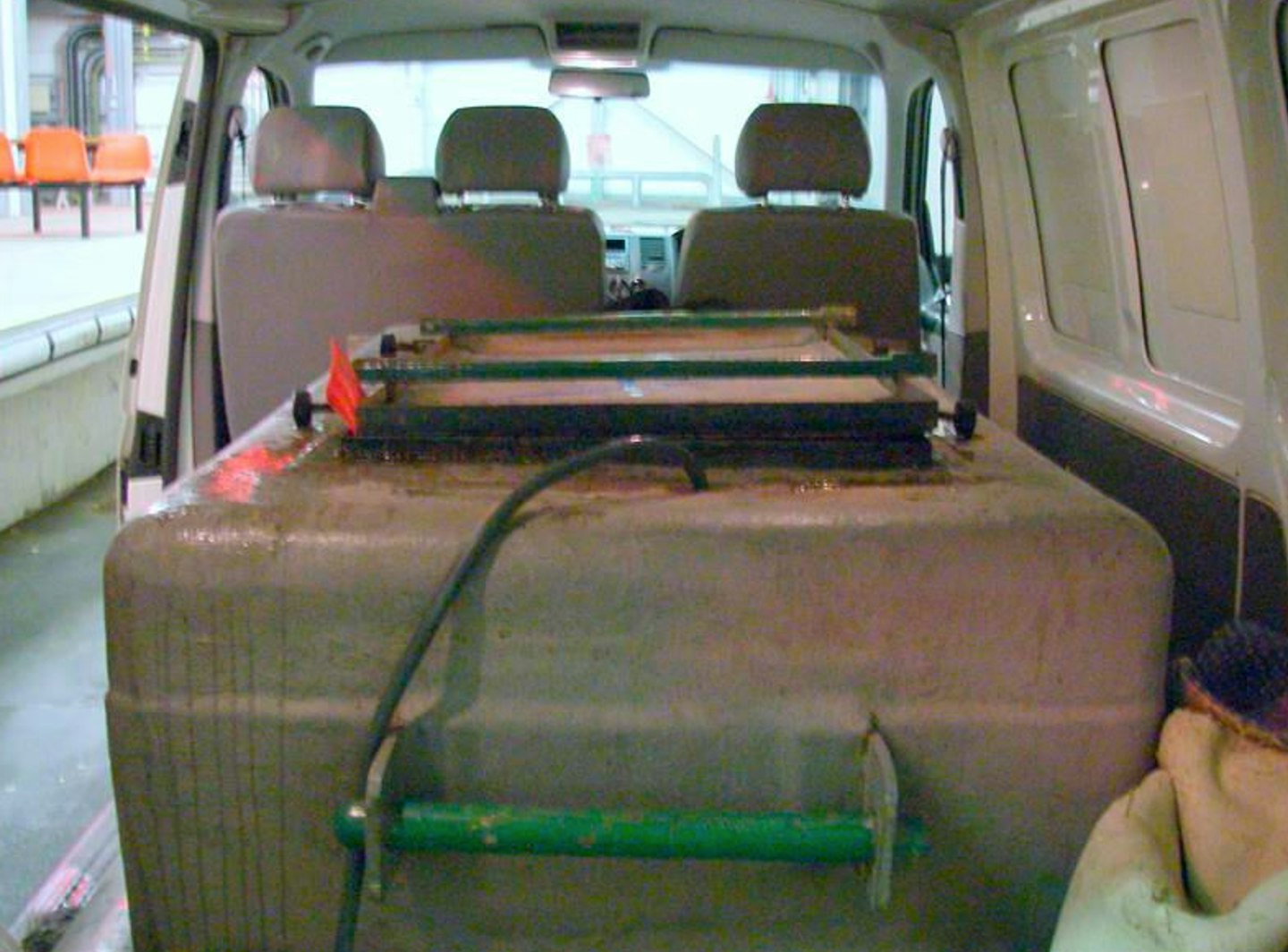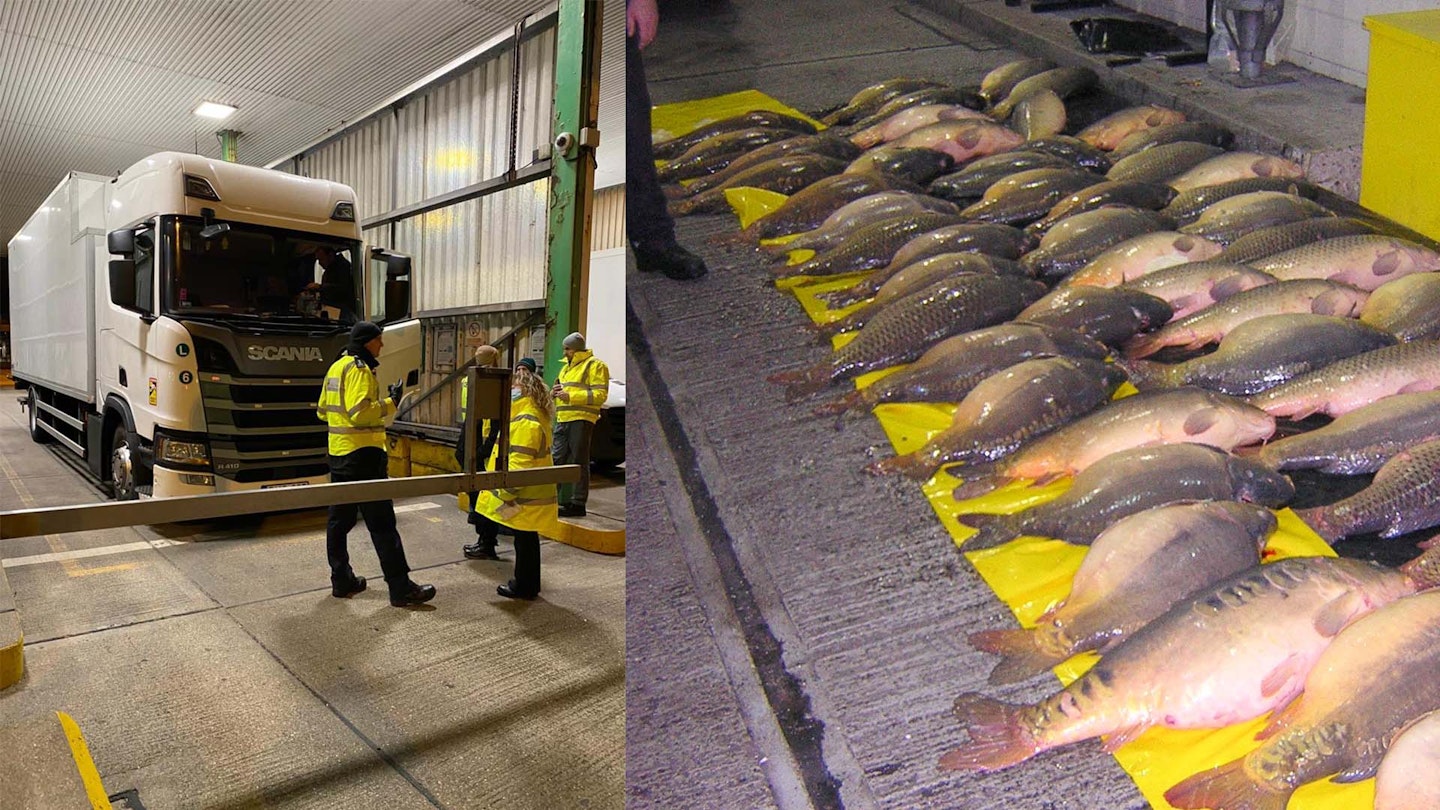What have an alligator gar, serious diseases and a 50lb carp in the back of a minibus got in common? They’re all among the weird and disturbing finds made by Centre for Environment Fisheries & Aquaculture Science (CEFAS) FHI enforcement lead Jon Hulland and deputy Josh Gray.
If anything, some of their encounters are even stranger than the Hot Fuzz-meets-Billingsgate Fish market scenario I’d imagined. “It’s a fascinating world, to put it mildly,” says Jon. “Even after 22 years, every day is different.” Along with Josh Gray, he’s come to expect the unexpected.
From a 120lb Asian silver carp “as big as a teenager” to assorted non-native catfish, you might think they’d seen it all. At least, until the next tip-off, and yet another reminder about the huge vigilance needed to protect UK fish farms and fisheries.

Killers on ice: The Prussian Carp
Just a couple of weeks ago Jon and his colleagues headed a multi-agency sting to seize 4,000 Prussian carp at Dover, as part of “Operation Frederick”. At first glance, these crucian relatives might look harmless, but with uncanny survival abilities and highly invasive characteristics, you’d be wrong.
“Even packed in ice, as these fish were, Prussian carp can survive perfectly well for days on end in a dormant state!” Jon says. “Although most are intended for food, it would only take one escapee fish to crossbreed with crucians or other cyprinids and potentially wipe out a whole fishery.”
With an insidious ability to create clones of themselves by breeding with other cyprinids, they’ve caused devastation across lakes in Hungary and elsewhere around the world. Serious stuff, but unfortunately just one item on a long list of current threats.
A fisheries pandemic in-waiting?
If illegal fish hauls pose an obvious warning, perhaps the most sinister current dangers of all are a host of virtually invisible diseases. While KHV might be well-publicised, SVC (spring viraemia of carp) is potentially even deadlier but less well-known. Deadly to carp and other cyprinids such as roach and crucians, it creates haemorrhaging in the gills and internal organs, and can be difficult to detect until it’s too late, causing large scale mortalities.
“UK fisheries have a high health status overall, and a lot of diseases prevalent in Europe aren’t found here,” says Jon. “That could all change if SVC got hold. The last time we saw it, around five years ago in the Midlands, an entire lake had to be drained. That’s how serious it is.”
Should this disease spread into the UK, our fisheries could also easily lose their special status, which currently prevents foreign fish from entering our borders. “Let’s be clear about this, a resurgence of SVC could put the entire UK fish farming industry in jeopardy, which is why there’s no room for complacency,” says Jon.

Vans, crates and dodgy stock
As avid anglers themselves, Jon and Josh are especially keen to stop cowboy operators and dodgy imports ruining our fisheries. “We’ve seen it all,” says Jon, “from fish wrapped in wet blankets, to hire vans with tanks and even containers hidden under piles of fishing tackle.”
While demand for carp has perhaps peaked for now, the Fish Health Inspectorate remain vigilant and are always open to tip-offs. “The great thing about the angling community is that sense of ownership – they want to protect their sport,” says Josh. “That’s why if they see or hear anything that shouldn’t be happening, they can contact us in confidence”.

HOW CAN I HELP PROTECT MY FISHING?
CEFAS is an agency of the Department for Food and Rural Affairs (DEFRA). Its enforcement arm deals with everything from the inspection and seizure of illegal stock at ports, through to control measures after disease outbreaks.
When it comes to detecting and preventing threats to fisheries, anglers are absolutely key, according to Jon and Josh. Tip-offs about unlicensed movements of fish, illegal imports, disease outbreaks and other risky practices can be confidentially reported.
CEFAS HOTLINE: 01305 206700 Email: fhi@cefas.co.uk
